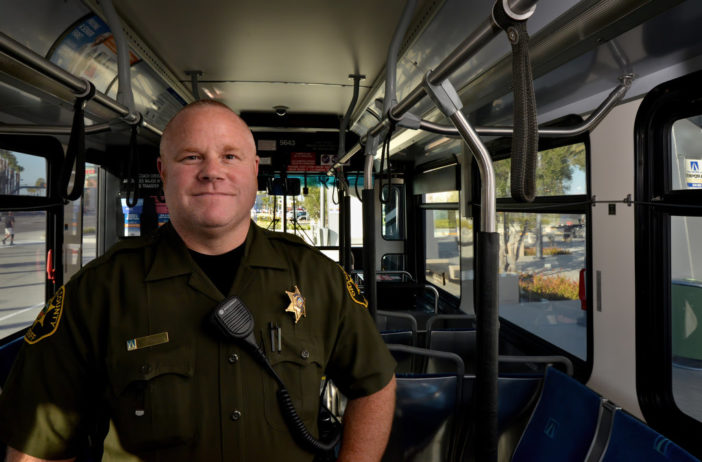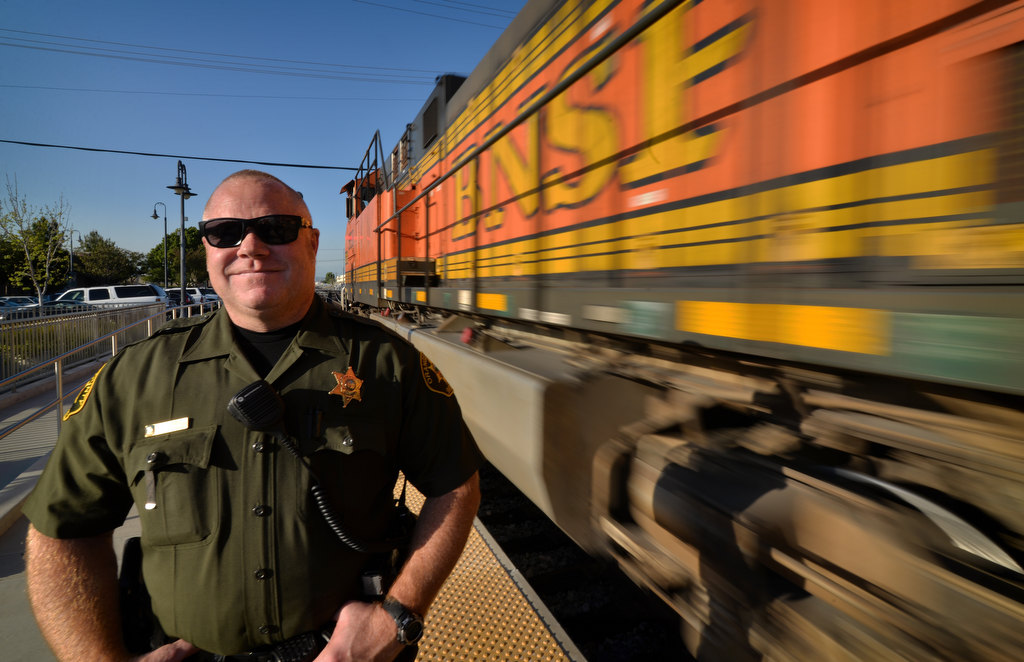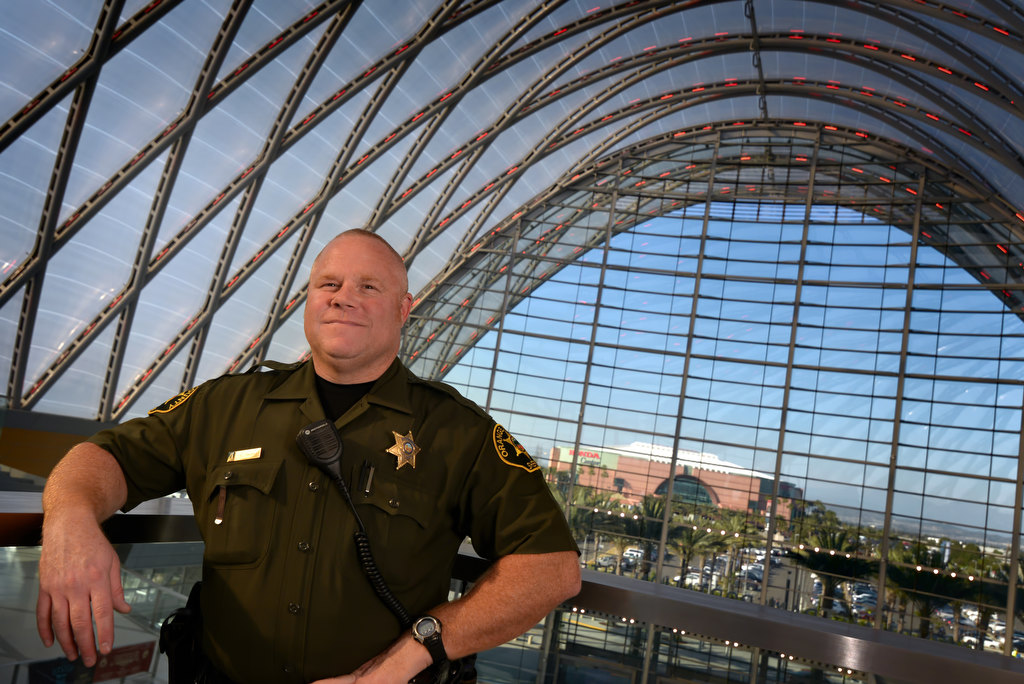It’s not the most glamorous police job, but somebody’s got to do it.
And that somebody on this hot March afternoon is Chad Smith.
Smith is one of three Orange County Sheriff’s deputies on the bus beat. Their assignment: shadow Orange County Transportation Authority buses in their patrol car so that they are Johnny-on-the-Spot if things go sideways.
Collectively, they respond to 350-400 calls for service each month.
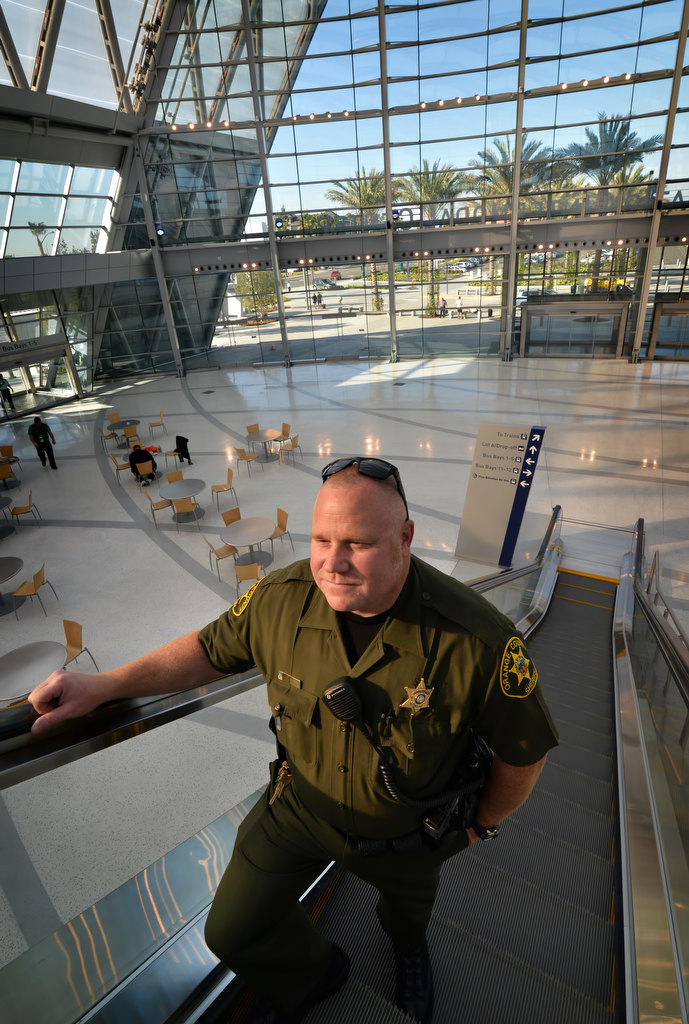
Orange County Sheriff’s Deputy Chad Smith of the Transit Police Services patrols the ARTIC (Anaheim Regional Transportation Intermodal Center) in Anaheim.
Photo by Steven Georges/Behind the Badge OC
“With nearly 1 million people boarding OCTA buses each week, the absolute first priority is the safety of each one of those passengers,” says OCTA Board Chair Lori Donchak. “We are proud of the deputies who serve as part of our Transit Police Services and the hard work they do, at all hours of the day.”
OCTA’s 550 buses operate from 4 a.m. to 2 a.m. seven days a week, so it’s like a mini mobile city on wheels. One that never sleeps. The population is diverse: Kids going to and from school, transients, seniors. People who have lost their driver’s license, or sometimes their car.
“It runs the gamut,” Smith says.
He logs 60-80 miles a shift on average, typically cruising the busiest of OCTA’s 77 routes: down Harbor or Beach. Up Katella or Orangethorpe.
If dispatch alerts him that a crime is underway on some bus down south in San Clemente or out in Yorba Linda, he’s off.
The No. 1 call: vandalism.
“People punching windows because the driver won’t open the door at a red light” is a big one, Smith says.
Assaults are the next most common call. Often the assault is on the driver; they get punched or spit on.
“You have some passenger with a mental illness or who is intoxicated or somebody who’s just not a nice person, they’re in a bad mood,” Smith says.
In such attacks, the bus driver must stand down.
“They’re not allowed to fight back,” Smith says. “They’re supposed to take it.”
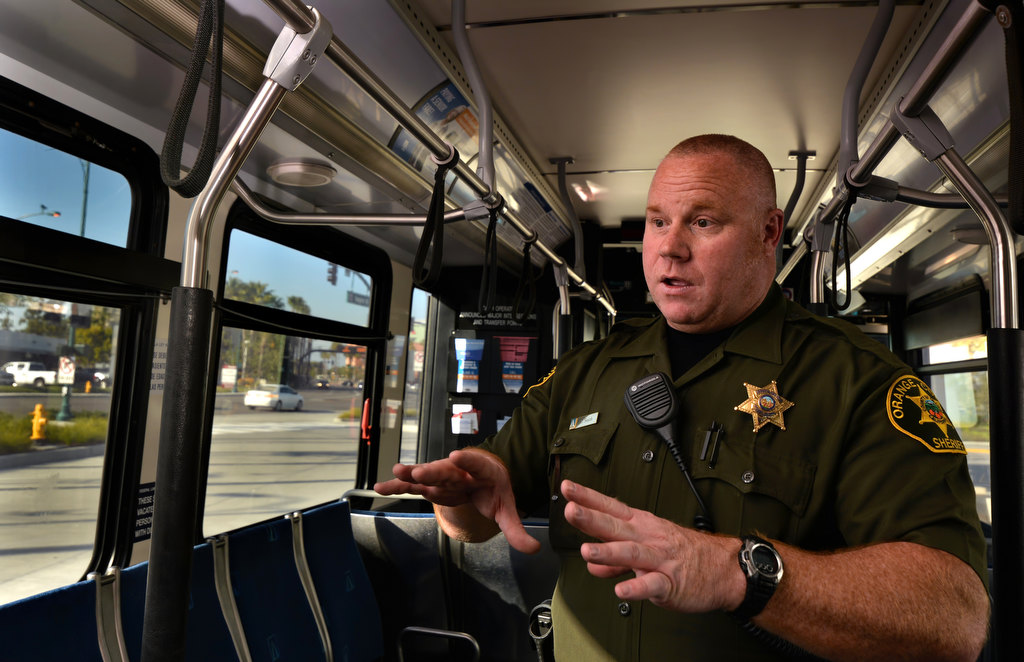
Deputy Chad Smith of the Transit Police Services talks about the transit beat while inside an OCTA bus in Anaheim.
Photo by Steven Georges/Behind the Badge OC
Another common call is for assistance getting a passenger to leave the bus.
At the end of the route the driver will walk through the bus looking for property, but sometimes find a human who refuses to get off. Or even wake up. “A sleeper,” Smith says.
Occasionally they find some runaways too and either try to reunite them with their family or get them to services they need.
The worst crime Smith has been called to was a stabbing between feuding passengers.
Because the perpetrator has often fled the scene by the time deputies arrive, authorities sometimes rely on technology. All buses have video cameras with audio. It has helped in some arrests.
The deputies also make routine pit stops to patrol the county’s major transportation hubs, such as the relatively new Anaheim Regional Transportation Intermodal Center. In the event of a suspicious package report, a bomb-sniffing dog goes along.
“A great deal of activity goes on behind the scenes to make sure that everybody arrives safely,” Donchak said.
 Behind the Badge
Behind the Badge
